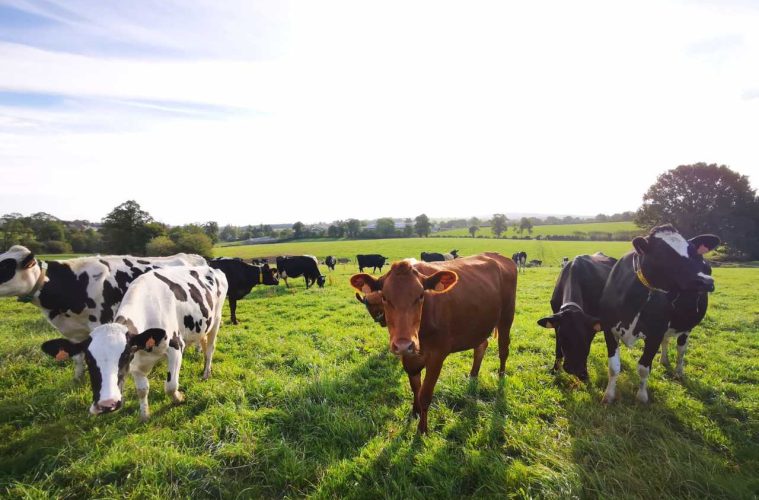A recent study by the European Alliance for Regenerative Agriculture (EARA) farmers’ group says that regenerative systems — ranging from agroecology to conservation agriculture and organic farming — are “not only viable but already superior in most contexts” compared to conventional agriculture in terms of yield, resilience and health of the planet. According to the study, regenerative agriculture pioneers may have yields that are only 2% lower, but generate similar incomes, provide more than 25% of ecosystem services and biodiversity while using 61% less synthetic nitrogen fertilizers, 76% less pesticides, and 88% less imported livestock feed than their counterparts practicing all forms of conventional agriculture in similar contexts.
Conventional agriculture, which focuses on short-term yield gains at the expense of the environment, will not be able to meet the European desire to fight against the degradation of soil health, the loss of biodiversity and climate degradation, not to mention the concern to strengthen the continent’s food sovereignty.
The EARA-led project, of which this report is the first phase, analyses the potential of regenerative farming systems as a potential solution to the problems posed by conventional agriculture. The report measures the achievements of regenerative agriculture pioneers using a new index called Regenerative Full Productivity (RFP) — a performance metric for land management outcomes developed — by farmers, researchers, and agronomists.
The Complete Regenerative Productivity Model (RFP)
The TFR is based on the Total Factor Productivity economic model, which measures the relationship between productivity/efficiency and economic prosperity. In other words, it’s about doing more with less. EARA’s FLR applies this model to the context of regenerative systems, measuring how productive farmers can be with fewer (and possibly zero) synthetic inputs. The study used field-level measurements, as well as farmer-generated data and satellite imagery to obtain its results.
The study tests the hypothesis that pioneering regenerative farmers can match or surpass their conventional counterparts not only in terms of yield, resilience and climate performance, but also in the regeneration of soils, ecosystems and biodiversity. The results of the study refute the idea that Europe’s food security depends on chemical-intensive agriculture. The phase-down, and eventual elimination, of synthetic inputs is not only feasible, but also economically and environmentally beneficial.
Equal yield with less than 60% synthetic fertilizers
This first phase of the farmer-led research programme took place on 78 regenerative farms in 14 European countries from 2021 to 2023. On these farms, the project found:
- More than 32% higher overall productivity on average, with gains ranging from 14% to 52%.
- More than 24% photosynthesis, 23% soil cover, and 17% plant diversity, all necessary to maintain productive and resilient soils, as well as optimal soil health.
- “Yield equality” despite a major reduction in inputs. Regenerative farms achieved, on average, only 2% less yield (in kilocalories and protein), while using 61% less synthetic nitrogen fertilizer and 76% less pesticides per hectare.
Regarding regional food sovereignty, while average European farms import more than 30% of livestock feed from outside the EU, pioneer farmers have achieved similar yields by using only feed from their regions. In total, the study highlights that these farmers delivered “more than 27% of Complete Regenerative Productivity (FLR) than the average European farmer, with gains ranging from 24% to 38% in the 14 countries studied”.
An 87% reduction in greenhouse gas emissions
EARA presents this study as a call to action, “undertaken to provide data that encourages people to follow the example of the pioneers”. For example, the Greek non-profit organization, The Southern Lights, operates regenerative agroforestry and is also working to educate others about such practices. “With EARA, we are at the forefront of helping more and more farmers take similar journeys,” says Sheila Darmos, co-founder and CEO, who is also an EARA farmer.
Following the example of Darmos, and others, could, according to the EARA study, reduce the net greenhouse gas emissions of the EU’s agricultural sector by 141.3 million tonnes per year, or 87%, in the first years of transition. After three to seven years of transition, the carbon footprint of the European agricultural sector could become “nature and climate positive” and be able to ensure food security for the entire region, says EARA.
Dr. Yann Boulestreau, EARA farmer, scientist and co-founder of AgSynergie, notes in the report: “Restoring ecosystems while being productive and profitable is not a dream of theorists sitting in offices,” he adds. “This is what pioneer farmers are doing on their fields across Europe. Let us support the dissemination of their techniques, for our common good. »
Source : AgFunder




